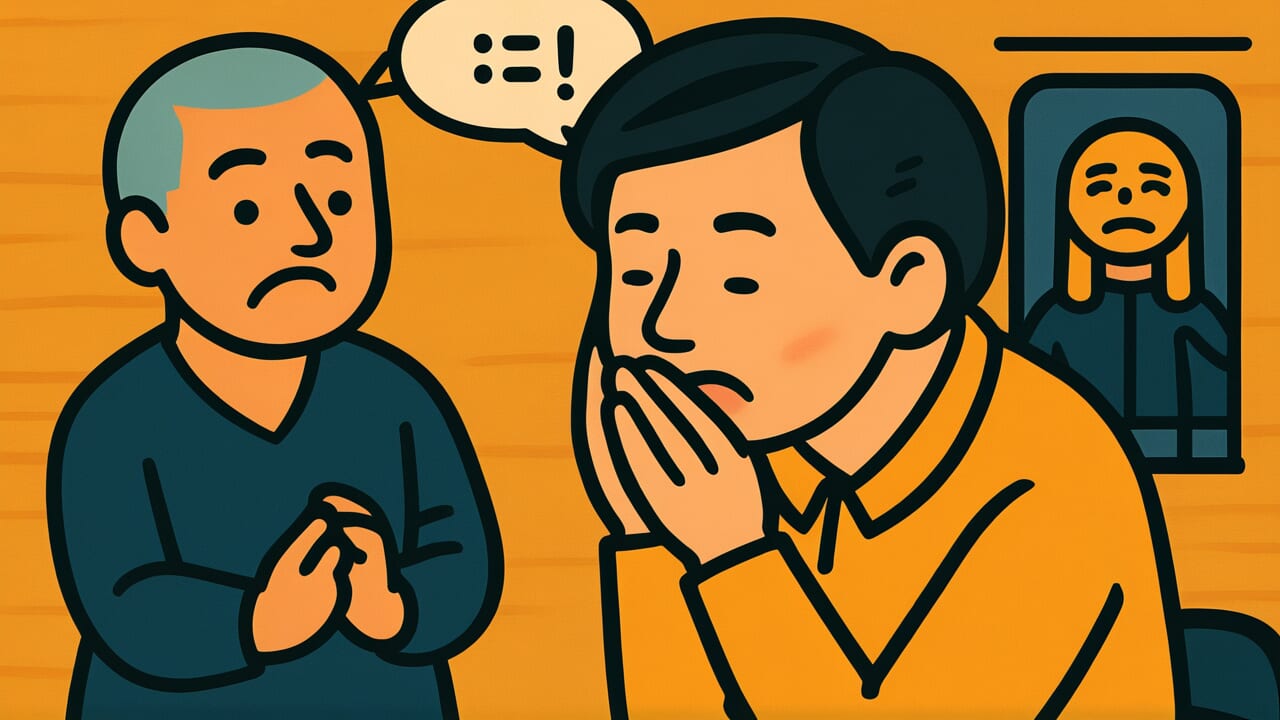How to Read “If you don’t work hard in your youth, you will grieve in your old age”
Shosō nishite doryoku sezunba rōdai nishite sunawachi shōhi sen
Meaning of “If you don’t work hard in your youth, you will grieve in your old age”
This proverb teaches that if you waste your youth when your body and spirit are strong, you will deeply regret it when you grow old.
Youth is a limited period in life. If you spend this precious time doing nothing, you can never get it back.
This warning has been passed down through generations.
People use this saying when older people warn lazy young people. It also helps when you need to motivate yourself.
Sometimes people use it to express regret about their past choices.
This teaching still applies today in many situations. It matters when students study, when young people build careers, and when anyone manages their health.
When you grow older and think “I wish I had tried harder back then,” it’s too late. Youth is a resource you can never regain.
This proverb captures that harsh reality in simple words.
Origin and Etymology
This proverb comes from a poem called “Long Song” in the ancient Chinese collection “Yuefu Shiji.”
The poem was written during the Han Dynasty. It talks about how quickly time passes and how precious youth is.
The original Chinese text reads “Shao zhuang bu nu li, lao da tu shang bei.” When it came to Japan, it was adapted into Japanese reading style.
“Shosō” means the young and energetic period of life. “Rōdai” refers to old age.
“Sunawachi” means “therefore” or “consequently.” “Shōhi” means deep sadness or regret.
This poem reflects ancient Chinese views about life. People understood that life is limited and youth never returns.
Physical and mental strength during youth were especially valued.
In agricultural society, young people’s labor was essential for supporting families and communities. This made the message even more important.
The proverb came to Japan along with Chinese poetry and Confucian philosophy. By the Edo period, it became widely known as a moral teaching.
Samurai education and temple schools repeatedly taught this lesson to young people. It has been passed down through generations as a warning.
Usage Examples
- I tell my son “If you don’t work hard in your youth, you will grieve in your old age,” but the message doesn’t seem to reach him
- Now I wish I had studied harder, which proves “If you don’t work hard in your youth, you will grieve in your old age”
Universal Wisdom
This proverb has survived because it touches on a fundamental human weakness and the harsh truth about time’s irreversibility.
When you’re young, you feel like you have unlimited time. There’s always tomorrow, next year, and chances to start over.
This is a deep-rooted illusion in human psychology.
We choose immediate pleasure over difficult effort. We postpone hard work again and again.
This is a pattern we all repeat.
But time flows mercilessly forward. When you finally notice, your physical strength has declined, your memory has weakened, and you’ve lost the flexibility to learn new things.
Only then do you understand how blessed you were in youth.
This painful regret has been experienced by countless people throughout history and across cultures.
Our ancestors understood this human nature well. Young people lack experience, so they can’t grasp time’s value.
Old people have experience, so they painfully understand time’s value.
This dilemma is life’s irony. That’s why they needed to preserve these words and pass them to the next generation.
This proverb quietly but powerfully teaches us how powerless humans are before time. It shows how fleeting the treasure of youth truly is.
When AI Hears This
Looking at youthful effort mathematically reveals the same structure as compound interest at a bank.
For example, invest one million yen at 5 percent annual interest. After 10 years, it becomes 1.63 million yen.
After 30 years, it becomes 4.32 million yen.
The same one million yen, but triple the time period creates 2.6 times more wealth. This is the power of exponential functions.
Human abilities grow through the same mechanism. Skills learned at age 20 aren’t just usable for the next 40 years.
New skills stack on top of those original skills.
In other words, programming learned young becomes the foundation for AI development later. That experience then generates new business opportunities.
This creates a chain reaction.
Start the same thing at age 50, and compound interest only works for 20 years. With the same principal but half the time, the final result differs like 1.63 million versus 4.32 million yen.
What’s decisive here is the physical law that time absolutely cannot be reversed. Entropy always increases.
You cannot return to the past.
You can earn money later. You can redo failures. But lost time can never be recovered, no matter what power in the universe you use.
This proverb isn’t simply advising “start early.” It states a mathematical fact: youth is the only chance to multiply compound effects on time, an irreversible resource.
Lessons for Today
This proverb teaches you not to miss the value of this very moment.
Modern society overflows with entertainment and information. If you lose focus, time passes in an instant.
You scroll through social media, watch endless videos, and somehow the day ends.
Are you repeating such days?
This proverb speaks to you gently but clearly.
What matters isn’t aiming for perfection. You can start small from today.
Thirty minutes of reading daily. Exercise once a week. Learning a new skill.
Small efforts accumulate to create your future self.
If you feel “it’s too late,” that’s also wrong. Youth is certainly precious.
But this moment when you’re feeling regret is also youth from tomorrow’s perspective.
What matters is starting today.
This proverb doesn’t exist to make you lament the past. It exists to help you value the present.
Your future changes through the choices you make today.



Comments